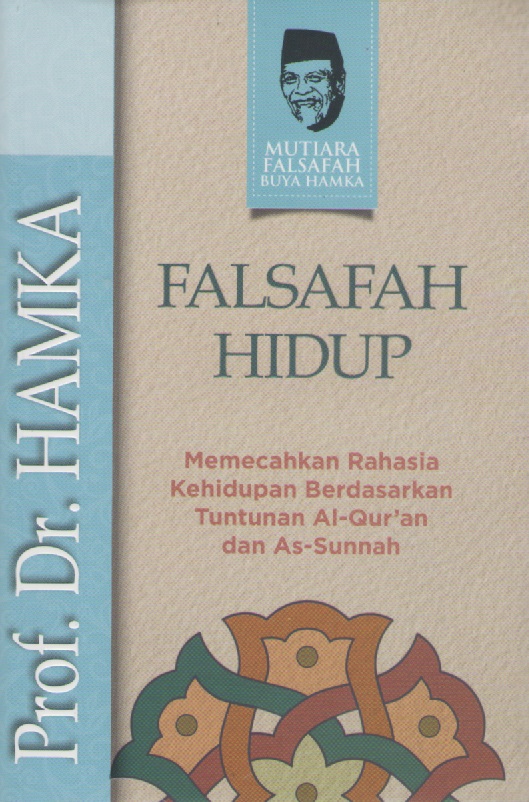
Buku Karya Buya Hamka Pdf Merge
Daftar Buku Karya Prof. Hamka atau Buya Hamka Dari Berbagai Penerbit. Biografi Prof. Hamka juga diberikan sebutan Buya, yaitu panggilan buat orang Minangkabau yang berasal dari kata abi, abuya dalam bahasa Arab, yang berarti ayahku, atau seseorang yang dihormati.
Is pointing to evidence of our intention to know a lot more about what is called our solar system 6. How we want to learn more about the solar system D. Contoh soal tes toefl dan pembahasan pdf to word 2016. Many of the current international problems we are now facing _______________ A.
The house, which was occupied by Hamka and his grandmother during his childhood in, was renovated in 2001 to become. The museum now holds most of his books, publications, and related goods. Hamka was born on 17 February 1908 (: 13 Muharram 1362AH) in Kampung Molek, Sungai Batang, Tanjung Raya, in the,, as the first child of seven brothers.
He was raised in a family of devout. His father was, a clerical reformer of Islam in Minangkabau who was known as Haji Rasul. His mother, Sitti Shafiyah, came from artists of Minangkabau descent. The father of Abdul Karim, Hamka's grandfather, namely was known as a follower of the. Before his education in formal schools, Hamka lived with his grandmother in a house south of.
When he was six years old, he moved with his father to Padang Panjang, West Sumatera. Following common tradition in Minang, he studied the Quran and slept in a mosque near the place where he lived because Minang boys did not have a place to sleep in the family house. In the mosque he studied the Quran.
He liked to listen to kaba, stories which are sung along with traditional Minangkabau music. Interaction with these storyteller artists gave him knowledge of the art of storytelling. Later, through his novels, Hamka often drew on Minang terms. Minang rhymes and proverbs adorn his works. Education [ ] In 1915, even after the age of seven, he enrolled in a village school ( Sekolah SMKA Sultan Muhammad) and studied general sciences such as numeracy and literacy. Hamka considered this time of his life to be one of the more joyous times.
In the morning, he rushed off to school so that he can play before class started. Then after school, he would go play again with his friends, such as hide and seek, wrestling, chasing after one another, like the other kids his age played. Two years later, while still learning every morning at the village school, he also studied in every afternoon. When his father enrolled him in in 1918, he could no longer attend classes at the village school.
He quit after graduating from two classes. After that, he studied at the Diniyah School every morning, while in the afternoon and evening studying in Thawalib back at the mosque. Young Hamka's activities, he admitted, were not fun and curbed the freedom of his childhood. While studying in Helmi Talib, he was not considered to be a smart child.
He often did not attend school for a few days because he felt bored and chose to seek knowledge in his own way, but rather he preferred to be in a library owned by his public teacher, rather than messing around with lessons that he must memorise in class. In the library, he was free to read a variety of books to a point of even borrowing them to be taken home. However, because of the books he had borrowed have nothing to do with lessons in Thawalib, he was scolded by his father when he was caught busy reading. His father said, 'Are you going to be a pious person or become a storyteller?' In an effort to prove himself to his father and partly driven by the books he was reading about, Hamka became very interested in migrating to the island of. At the same time, he was no longer interested in completing his education at Thawalib.
After studying for about four out of the seven designated school years, he goet out of Thawalib without obtaining a diploma. In those days after that, Hamka was taken to, about 5 km from, in 1922 to study under, but did not last long.
He preferred to follow his heart to seek knowledge and experience in his own way. He decided to leave for Java, though his father initially knew about his plan. Migrating to Java [ ] Hamka has ventured into a number of places in Minangkabau since he was a teenager, he was nicknamed by his father as 'The Faraway Kid' ( Si Bujang Jauh). His parents divorced when he was aged 15, an experience which shook his soul; thus he decided to go to Java, learning that the Islam taught in Java being more advanced than that in the highlands, especially in terms of movement and organisation. However, he contracted when on his way in, so he decided to return to Padang Panjang after bed-stricken for about two months. Even so, his intention to go to Java never diminished, and he departed to Java in 1924, a year after recovering from the disease. Arriving in Java, Hamka went to and settled in the house of his father's younger brother, Amrullah Ja'far.